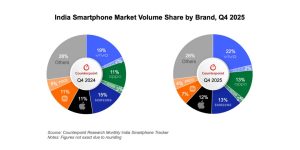After being on sick leave since 2008 due to illness, IBM employee Ian Clifford has taken legal action against his employer, IBM, for unfair wages. Clifford alleges that his current wages are insufficient to keep up with the ever-increasing inflationary pressures. The lack of a salary increase, coupled with the rising cost of living, has left him struggling to make ends meet.
A Look at Clifford’s Salary
Clifford’s annual salary of £72,037 ($89,671) seems impressive at first glance. However, when taking into account IBM’s health plan, which entitles him to 75% of his salary, his actual take-home pay amounts to £54,028 (around $67,254). While the amount is still significant, Clifford has not been required to perform any work for IBM for the past 15 years.
The Wage Dispute
Clifford contends that he has not received a raise since 2013, and his current income is inadequate given the ever-rising inflation rates. He argues that with the erosion of his purchasing power over time, his salary has become less and less effective at maintaining his standard of living. According to the median salary for full-time employees in the UK, Clifford’s salary is more than twice the average income of £33,000 ($41,078) per year. However, when compared to all employees, including part-time workers, Clifford’s salary of £54,028 ($67,254) falls short of the average salary of £27,756 ($34,550) per year.
IBM’s Health Plan
Under IBM’s health plan, Clifford is entitled to this payment until the age of 65, which amounts to a total of £1.5 million (approximately $1.86 million). The judge in the case, however, dismissed Clifford’s argument, stating that “Even if the value of the £50,000 ($62,240) a year halved over 30 years, it is still a very substantial benefit.” While the case may seem to be a matter of one employee’s situation, it highlights the challenges that arise when a worker is unable to work due to illness and becomes reliant on their employer’s benefits.
The Future of Sick Pay
The case has raised questions about the fairness of sick pay schemes and the impact of inflation on employees who are unable to work due to illness. Employers will need to be more mindful of the long-term impact of inflation on sick pay and other benefits, as well as consider the impact of pay stagnation on employees. While sick pay schemes are designed to support employees, employers must be aware of the potential negative consequences of failing to keep up with inflation rates.











































































































































































